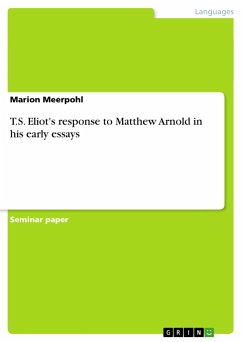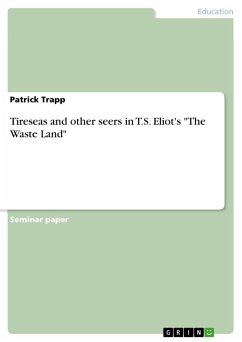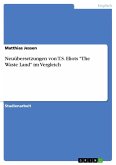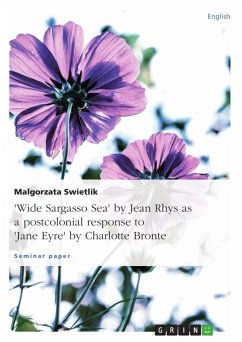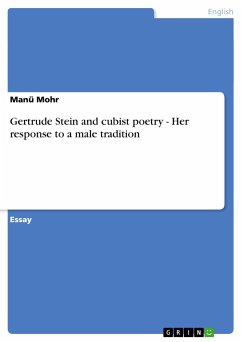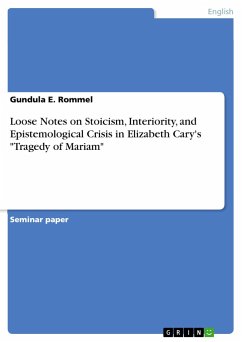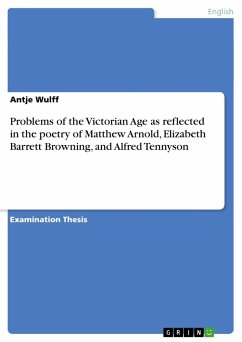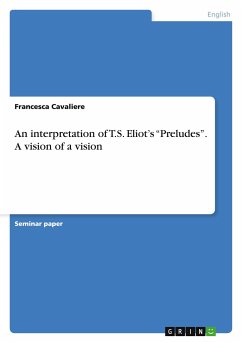Seminar paper from the year 2004 in the subject Didactics - English - Literature, Works, grade: 2,0, University of Münster (Englisches Seminar), course: T.S. Eliot, Critical Essays, language: English, abstract: In the course of history, literature as well as literary theory and critique experienced various changes due to social circumstances. Their function in certain periods and epochs differed vastly. Without any doubt, the Victorian critic and poet, Matthew Arnold, represents a significant predecessor of Thomas Stearns Eliot and is fundamentally important for the understanding of his literary theory and criticism. The modern literary critic of the 20th century, T. S. Eliot, is therefore more closely associated with the theories of the Victorian artist than any other literary critic or poet. However, their relation is not easy to define and bares not only immense analogies but also many divergences and contradictions. The present work represents an analysis of T. S. Eliot's reaction towards Matthew Arnold in his early essays. Therefore, it also traces the transition of literary theory and criticism from the 19th to the 20th century. Their attitudes towards literary the-ory and poetry will be exposed as well as their concept of literary criticism and its functions. Besides, their notion of historical circumstances and their perception of morality in literature are crucial aspects worth a detailed observation. For this purpose, Eliot's comments on Matthew Arnold in his early essays serve as a basis for the illustration and form the central source. Therefore, "Tradition and the Individual Talent" (1919), "Hamlet" (1919), "The Perfect Critic" (1920), "The Function of Criticism" (1923), "Matthew Arnold" (1933), and "Arnold and Pater" (1930) constitute the main works of reference. Further works by various authors provide supplementary opinions on the subject and subsequently offer more postures when it comes to forming a judgement on the complex relation between the two artists. One has to bear in mind, however, that this exposition focuses on Eliot's early years, which differ to some degree from the position he holds towards several subjects in his later achievements.

